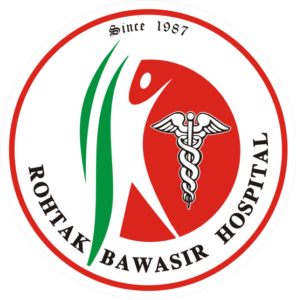Bawasir During Pregnancy: Causes, Prevention, and Remedies


Updated on: 4th Jun 2024
Pregnancy is a transformative phase in a woman’s life, filled with joy and challenges. While the journey brings happiness, it also comes with certain health concerns, one of which is Bawasir (commonly known as piles or hemorrhoids). This condition can be particularly distressing during pregnancy. In this blog, we explore the causes, prevention strategies, and effective remedies for Bawasir in expecting mothers.
Understanding Bawasir

Bawasir refers to swollen veins in the rectal or anal area, which can be internal (inside the rectum) or external (around the anus). These swollen veins can cause discomfort, itching, bleeding, and pain, especially during bowel movements.
Causes of Bawasir During Pregnancy

Pregnancy increases the likelihood of developing Bawasir due to several physiological changes:
Increased Pressure in the Pelvic Area
The growing uterus exerts pressure on the pelvic veins and the inferior vena cava, leading to reduced blood flow from the lower body and causing the veins in the rectal area to swell.Hormonal Changes
Higher levels of progesterone during pregnancy relax the walls of veins, making them more prone to swelling. Progesterone also slows down bowel movements, increasing the risk of constipation.Constipation
Constipation is a common issue during pregnancy due to hormonal changes and dietary modifications. Straining during bowel movements further aggravates the risk of Bawasir.Weight Gain
Additional body weight during pregnancy puts extra pressure on the veins, contributing to the development of piles.Increased Blood Volume
The body produces more blood during pregnancy to support the growing fetus, which can enlarge veins and make them more susceptible to swelling.
Prevention Strategies for Bawasir in Pregnancy

Prevention is key to managing Bawasir effectively during pregnancy. Here are some practical tips:
Maintain a High-Fiber Diet
Include fiber-rich foods like fruits, vegetables, whole grains, and legumes to prevent constipation. Aim for 25–30 grams of fiber daily.Stay Hydrated
Drink at least 8–10 glasses of water daily to soften stools and promote smooth bowel movements.Regular Exercise
Gentle activities like walking, prenatal yoga, and swimming can improve circulation and prevent constipation.Avoid Prolonged Sitting or Standing
Change positions frequently to reduce pressure on the rectal veins.Practice Good Bathroom Habits
Avoid straining during bowel movements and respond promptly to the urge to go. Use a footstool to elevate your feet, which can help in easier evacuation.Wear Comfortable Clothing
Avoid tight clothing, especially around the waist, as it can restrict blood flow.
Effective Remedies for Bawasir During Pregnancy

If Bawasir develops despite preventive measures, several remedies can provide relief:
1. Home Remedies
- Warm Sitz Baths: Soak in warm water for 10–15 minutes a few times daily to relieve swelling and discomfort.
- Cold Compresses: Apply cold packs to the affected area to reduce swelling.
- Topical Treatments: Use doctor-recommended creams or ointments containing hydrocortisone or witch hazel.
2. Dietary Adjustments
Increase the intake of fiber and fluids. Include natural laxatives like prunes and pears to ease bowel movements.
3. Kegel Exercises
Strengthen pelvic muscles to improve blood circulation and support the rectal area.
4. Safe Medications
Over-the-counter stool softeners or fiber supplements like psyllium may be used after consulting your doctor.
5. Proper Hygiene
Keep the anal area clean and dry. Use soft, unscented wipes instead of toilet paper to avoid irritation.
Conclusion
Bawasir during pregnancy can be challenging but is manageable with the right care and preventive measures. By adopting a healthy lifestyle and consulting experts when needed, you can ensure a smoother pregnancy journey. At Rohtak Bawasir Hospital, compassionate and effective treatment awaits you, so you can focus on cherishing this special time in your life.
Meet Our Specialists

Dr. Raj Kumar Garg (B.A.M.S.)
40+ Years of Experience

Dr. Rahul Garg (B.A.M.S.)
15+ Years of Experience

